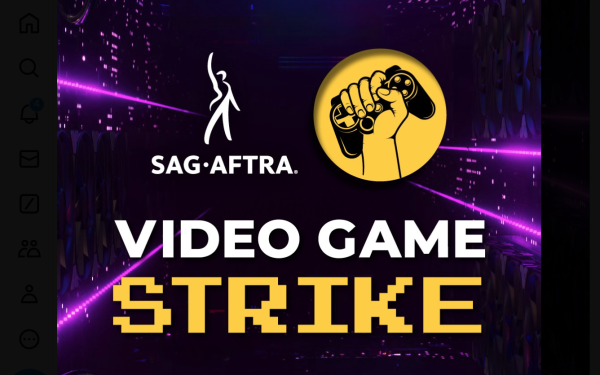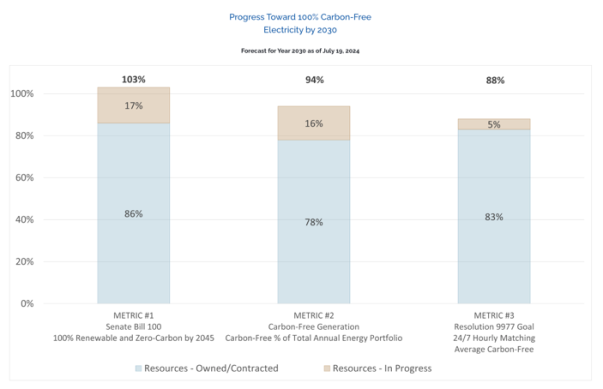More than 2,000 SAG-AFTRA members who work on video games continued their strike Saturday after contract talks broke down largely as a result of discord surrounding artificial intelligence.
Duncan Crabtree-Ireland, SAG-AFTRA national executive director and the union’s lead negotiator, announced the strike Thursday on behalf of approximately 2,500 video-game actors who work under the Interactive Media Agreement. The strike took effect at 12:01 a.m. Friday.
Video-game actors last went on strike in October 2016, before AI became a major issue.
“We’re not going to consent to a contract that allows companies to abuse AI to the detriment of our members. Enough is enough,” SAG-AFTRA President Fran Drescher said in a statement. “When these companies get serious about offering an agreement our members can live — and work — with, we will be here, ready to negotiate.”
On July 20, the union warned that a strike would be unavoidable if there was no agreement between the union and video game producers on contract terms pertaining to AI.
The union contract is known as the Interactive Media Agreement, which expired in November 2022. It covers performers who do voice-over and motion-capture work in the video games.
“Frankly, it’s stunning that these video game studios haven’t learned anything from the lessons of last year — that our members can and will stand up and demand fair and equitable treatment with respect to A.I., and the public supports us in that,” Crabtree-Ireland said.
Video-game actors are seeking a new deal that would require producers to get their consent before reproducing their voices or likenesses with artificial intelligence technology.
Crabtree-Ireland said video game performers “deserve and demand the same fundamental protections as performers in film, television, streaming, and music: fair compensation and the right of informed consent for the A.I. use of their faces, voices, and bodies.”
Union negotiators said contract talks have yielded gains in wages and job safety, but the studios will not make a deal over the regulation of generative AI, according to published reports. The union is concerned that without protections for performers, gaming companies could train AI to mimic an actor’s voice or create a digital copy of their face and body without adequate compensation or the actor’s consent.
Audrey Cooling, a spokesperson for video game producers including Activision, Electronic Arts, Insomniac and Blindlight, said in a statement Thursday to the Los Angeles Times that the companies were negotiating “in good faith” and the two parties had “reached tentative agreements on the vast majority of the proposals.”
She added the companies were optimistic that an agreement is still possible.
“We are disappointed the union has chosen to walk away when we are so close to a deal, and we remain prepared to resume negotiations,” she said in a statement to the Times on Saturday.
Sarah Elmaleh, SAG-AFTRA’s Interactive Media Agreement negotiating committee chair, said in a statement that a year and a half of negotiations “have shown us that our employers are not interested in fair, reasonable AI protections, but rather flagrant exploitation.”
During last year’s Hollywood actors’ strike, residuals and AI emerged as the 118-day work stoppage’s most contentious issues. The strike ended Nov. 9 with a contract that included wage increases, AI safeguards, streaming bonuses and other improvements.
Hollywood writers also went on strike last year.
According to the Writers Guild of America, gains made in the contract approved Oct. 9 include for television scribes, “first-ever writers’ room staff size minimums and guaranteed duration of employment, including a requirement to employ writers in production, new premium wage tiers for writer-producers and for work in pre-greenlight rooms, and script fees for staff writers.” For movie writers, “the new contract includes a guaranteed second step and accelerated payment schedule, along with improved compensation for streaming features.”
The contract also includes restrictions on the use of AI in film and television productions.







